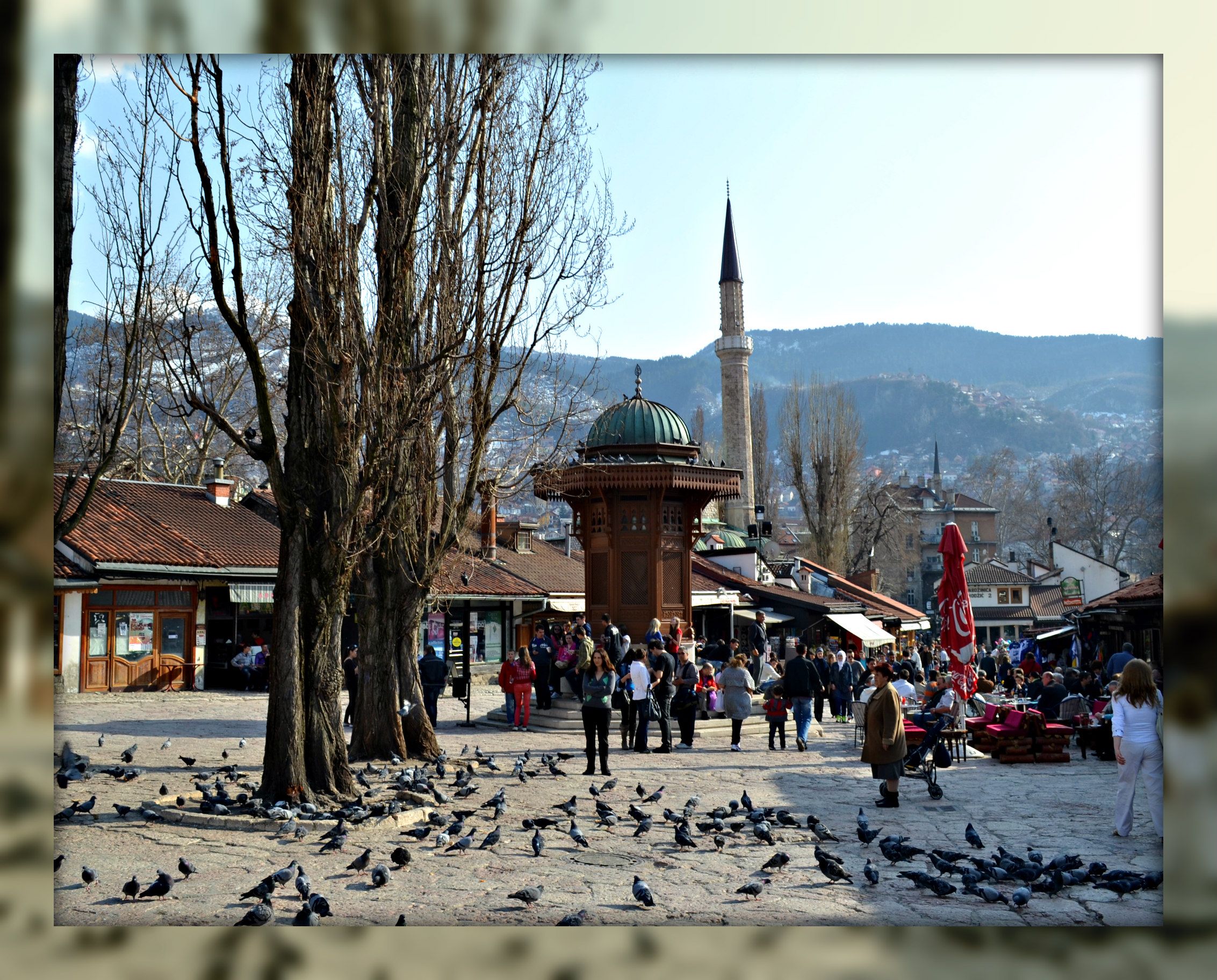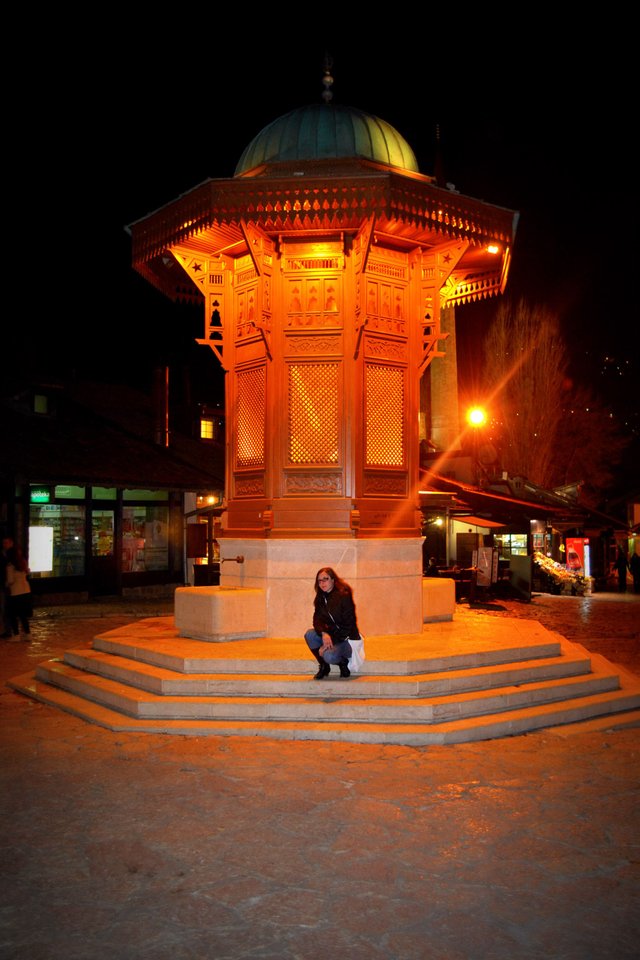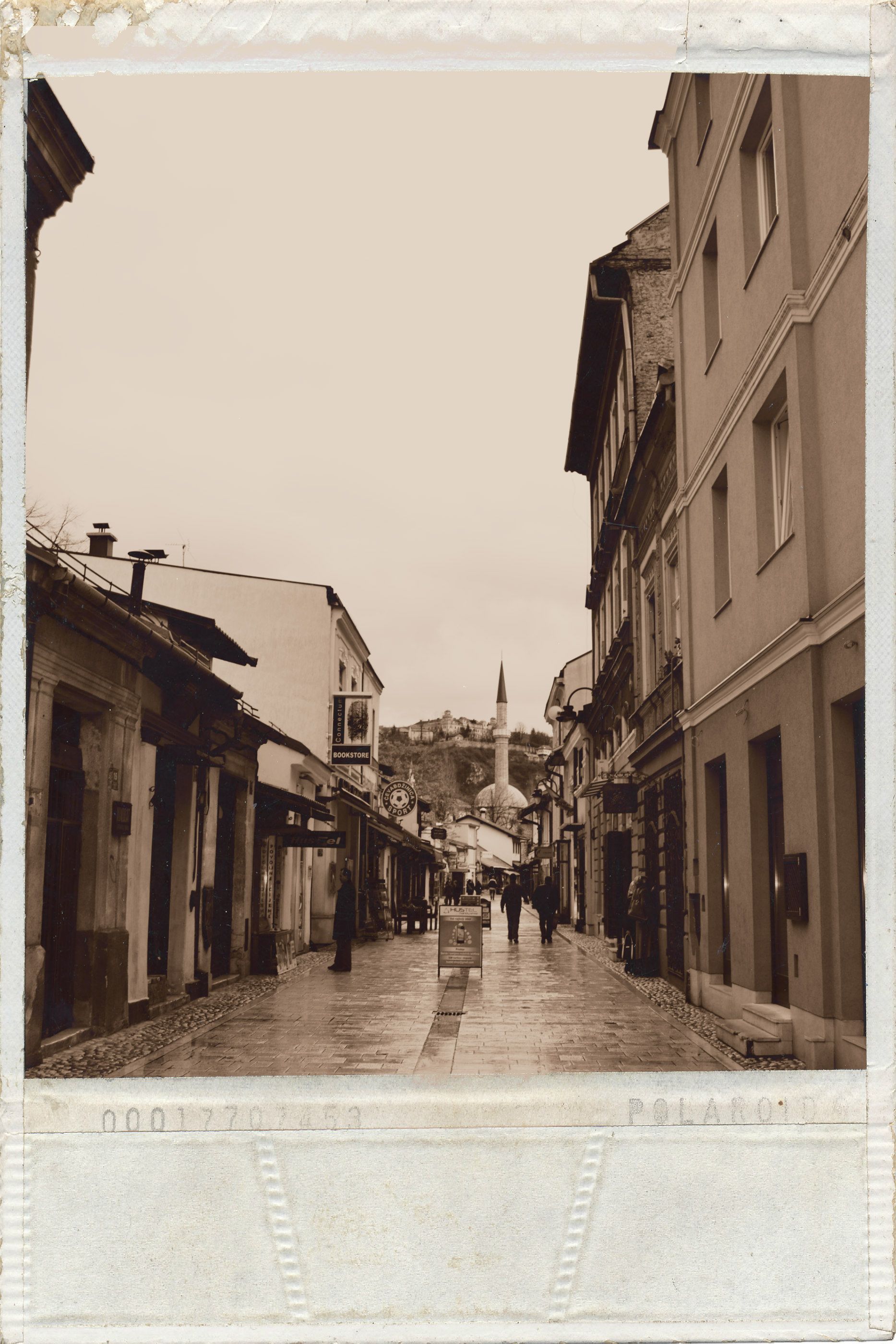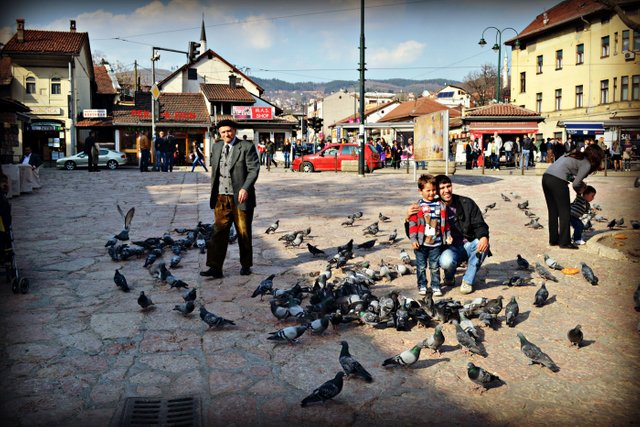Famous for its traditional religious diversity, with adherents of Islam, Orthodoxy, Catholicism and Judaism coexisting there for centuries, Sarajevo has often been called the "Jerusalem of Europe"or "Jerusalem of the Balkans.

Today, when I mention Bosnia and Herzegovina to people I talk to, most of them need to be reminded where it is. Same goes for most of ex-Yugoslavien countries. If they know about it, it's usually on the account of civil war that was raging there between 1992-1995 and took more than 100.000 lives.
But it should be known for so much more.
I believe that in order to understand the country you are visiting and its people, it's good to know a little bit about the history and influences that shaped it. Therefore I decided to open this set of blogs about Bosnia and Herzegovina with a little bit of history.
It's the country with very rich history. The area was first populated with Illyrians who later mixed with Celts in 4th and 3rd century BC. The Slavs, a migratory people from southeastern Europe, were allied by the Eurasian Avars in the 6th century, and together they invaded the Eastern Roman Empire in the 6th and 7th centuries, settling in what is now Bosnia and Herzegovina. Through feudalism of dark ages, time of Banate of Bosnia and Kingdom of Bosnia, country arrived to one of more significant historical events for it's further development - the start of Ottoman Era. It introduced tremendous changes in the political and cultural landscape of the region including a new landholding system, a reorganization of administrative units, and a complex system of social differentiation by class and religious affiliation. During the time of the Ottoman era many of the mosques that we see today were built and a native Slavic-speaking Muslim community emerged and eventually became the largest ethno-religious group, while a significant number of Sephardi Jews arrived following their expulsion from Spain in the late 15th century.
Ottomans were ruling the country for 3 centuries until they were forced to cede administration of Bosnia to Austria-Hungary through the Treaty of Berlin in 1878. By the latter half of 1910 the idea of unified South Slavic states became a popular ideology that eventually let to assassination of the heir to Austria-Hungarian throne. Archduke Franz Ferdinand was assassinated on 21. June 1941 by Gavril Princip who was revolutionary of Young Bosnia (most members were young Serbian, Bosnian and Croat scholars and students who shared idea about unification: Yugoslav unification into Yugoslavia and Pan-Serbs who wanted unification into Serbia). This set off the chain of events that started WORLD WAR I.

After WWI, in which Bosnia lost about 10% of population due to Bosniaks that served in the army or were being killed by various warring states, Bosnia was incorporated into the South Slav kingdom of Serbs, Croats and Slovenes (soon renamed Yugoslavia -Yugoslavia literary means South Slavia). Kingdom was mostly occupied dealing with internal political issues and trying to reconcile so many different people living together until the politicians needed to shift their focus on a raising threat posed from Adolf Hitler's Nazi Germany. Following a period that saw attempts at appeasement, the joining of the Tripartite Pact, and a coup d'état, Yugoslavia was finally invaded by Germany on 6 April 1941.

Starting in 1941, Yugoslav communists under the leadership of Josip Broz Tito organized their own multi-ethnic resistance group, the Partisans, who fought against Axis, Ustaše, and Chetnik forces. On 25 November 1943 the Anti-Fascist Council of National Liberation of Yugoslavia with Tito at its helm held a founding conference in Jajce where Bosnia and Herzegovina was reestablished as a republic within the Yugoslavian federation in its Ottoman borders. Military success eventually prompted the Allies to support the Partisans. On 6 April 1945 Sarajevo was captured by the Partisans. The end of the war resulted in the establishment of the Federal People's Republic of Yugoslavia, with the constitution of 1946 officially making Bosnia and Herzegovina one of six constituent republics in the new state.
Since establishment of Federal People's Republic of Yugoslavia and up until 1992 when the civil war began, things were going fairly smoothly.

Problems ensued after Slovenia and Croatia declared their independence. Offensives begun in march 1992 and it led into 3 years of war, killings, massacres and even genocide. The signing of the Dayton Agreement in Paris by the presidents of Bosnia and Herzegovina (Alija Izetbegović), Croatia (Franjo Tuđman), and Yugoslavia (Slobodan Milošević) brought a halt to the fighting, roughly establishing the basic structure of the present-day state. The three years of war and bloodshed had left between 90,000 and 110,000 people killed and more than 2 million displaced. I was one of them.
Hello, I think you'll enjoy participating in my challenge. Guess the location and win 0.1 SBD. go to my latest post, guess the location and win 0.1 SBD. Where Is This

Downvoting a post can decrease pending rewards and make it less visible. Common reasons:
Submit
I am definitely interested to see if I can guess it. Thank you for the invite :)
Downvoting a post can decrease pending rewards and make it less visible. Common reasons:
Submit
Lep post. Več takih :)
Downvoting a post can decrease pending rewards and make it less visible. Common reasons:
Submit
Hvala. Se bom potrudila. Tale je bil prvi. Se še lovim. :)
Downvoting a post can decrease pending rewards and make it less visible. Common reasons:
Submit
Dobrodošla!
Lep post! Kar tako naprej.
Downvoting a post can decrease pending rewards and make it less visible. Common reasons:
Submit
Hvala za vzpodbudo! :)
Downvoting a post can decrease pending rewards and make it less visible. Common reasons:
Submit